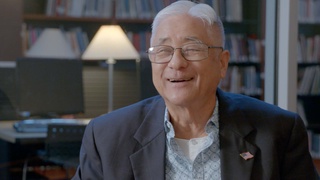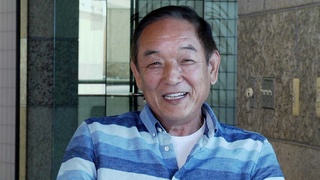Interviews
Grandmother convinced his mother to return to Canada
I think she (my mom) was homesick. She said that herself, she wanted to go home, and she wanted to have her second [child], she wanted to have, she was homesick for her mother, so she went, well, she was fairly young, of course, like I said before. Twenty-three, yeah, she would be still in her early twenties by then. And she went home, and she went back to Japan, and she had her second child. And we stayed there for, oh, over a year. And Papa was, used to, continued to work and send, send money back. And eventually, her mother said, "You know, you have to go back to Canada because your father is very faithful to you, sending you money every month and everything. He's put up his, he's doing his part, so you have to do your part." And she, her mother convinced her to come back to Canada. And so by the time we came back to Canada, my sister was a little over one year old, I think. So we were there for about two years, three years, two or three years. 'Cause by the time I came back, I was, I went back, I was almost five, I was four and something. So we were at least two and a half, two years in Japan, came back to Canada, and then of course, we stayed.
Date: July 25 & 26, 2006
Location: Washington, US
Interviewer: Tom Ikeda
Contributed by: Denshō: The Japanese American Legacy Project.
Explore More Videos


My daughter couldn’t fit in Japan, so I decided to go back to America (Japanese)
(b. 1936) Shin-issei welding business owner

Tough life at boarding house (Japanese)
Shin Issei – owner of izakaya (Japanese-style tavern) and kappo (small Japanese diner) restaurant, Honda-Ya



General reasons why people left Japan for Peru
Okinawan American whose parents are from Peru.

Her mother came to the U.S. with a group of picture brides
(b. 1923) Japanese American poet, activist

Her father bought her mother American clothes after she arrived from Japan
(b. 1923) Japanese American poet, activist
